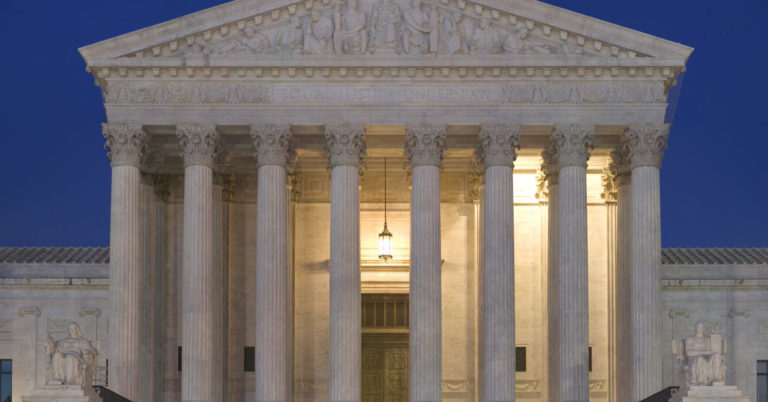
AFPF CEO Highlights How Free Speech Makes for Unlikely Allies
Nearly 300 unlikely allies—including the American Civil Liberties Union, the NAACP, the Human Rights Campaign, Becket Fund, PETA, and Institute for Justice—came together to defend free speech in Americans for Prosperity Foundation v. Bonta. This month the U.S. Supreme Court decided the case, striking down California’s blanket demand to obtain lists of people who support nonprofit organizations.
Emily Seidel, CEO of Americans for Prosperity Foundation, the named plaintiff in the suit, writes in a Morning Consult op-ed that the “decision upholds the right of every American to support causes without fear of government harassment or ideological intimidation.”
And she spells out why this is so important, especially in these challenging times.
Why do nonprofits want to protect the identity of donors? Because putting their supporters on government lists threatens their ability to advocate for their beliefs. That was true when the Supreme Court took up this issue in 1958. In that case, NAACP v. Alabama, the justices blocked segregationist state leaders from obtaining the names of civil rights activists. Recognizing that these sorts of disclosure demands are likely to chill First Amendment freedoms, the court held that the government cannot make blanket demands for the production of sensitive associational information without a persuasive justification. While the dangers civil rights activists confronted in challenging Jim Crow were unique, the Supreme Court this month made clear that the constitutional protections established in NAACP v. Alabama continue to reverberate across the ideological spectrum.
Take the Council on American-Islamic Relations. It told the court that Muslims in America are endangered by government attempts to catalogue people’s activities and associations. The ACLU and NAACP said that such government demands “seriously diminish” people’s right to “organize to defend values out of favor with the majority.” Another brief, signed by groups ranging from Charity Navigator to the Southern Poverty Law Center, made clear that shifting political winds and elected officials mean that groups must constantly be afraid of “threats, harassment, reprisals, and even political targeting,” especially those engaged on “controversial issues unpopular at the time.”
What issues might those be? Who would have to fear the most? Take your pick. Historically, the opponents of Jim Crow laws or the supporters of marriage equality would have been easy targets. Today, it could be advocates for racial justice, criminal justice reform or government accountability, to name a few. In some states, the advocates of socialism could be targeted. In others, it could be the defenders of economic freedom. People whose views are in vogue today could find themselves the targets of vicious personal attacks or even violence tomorrow.
Learn more about the case here and about Americans for Prosperity Foundation’s broader civil liberties work here. And you can find Seidel’s Morning Consult full commentary here.



